How a Japanese Donated Bus Carried Me Toward a Brighter Future
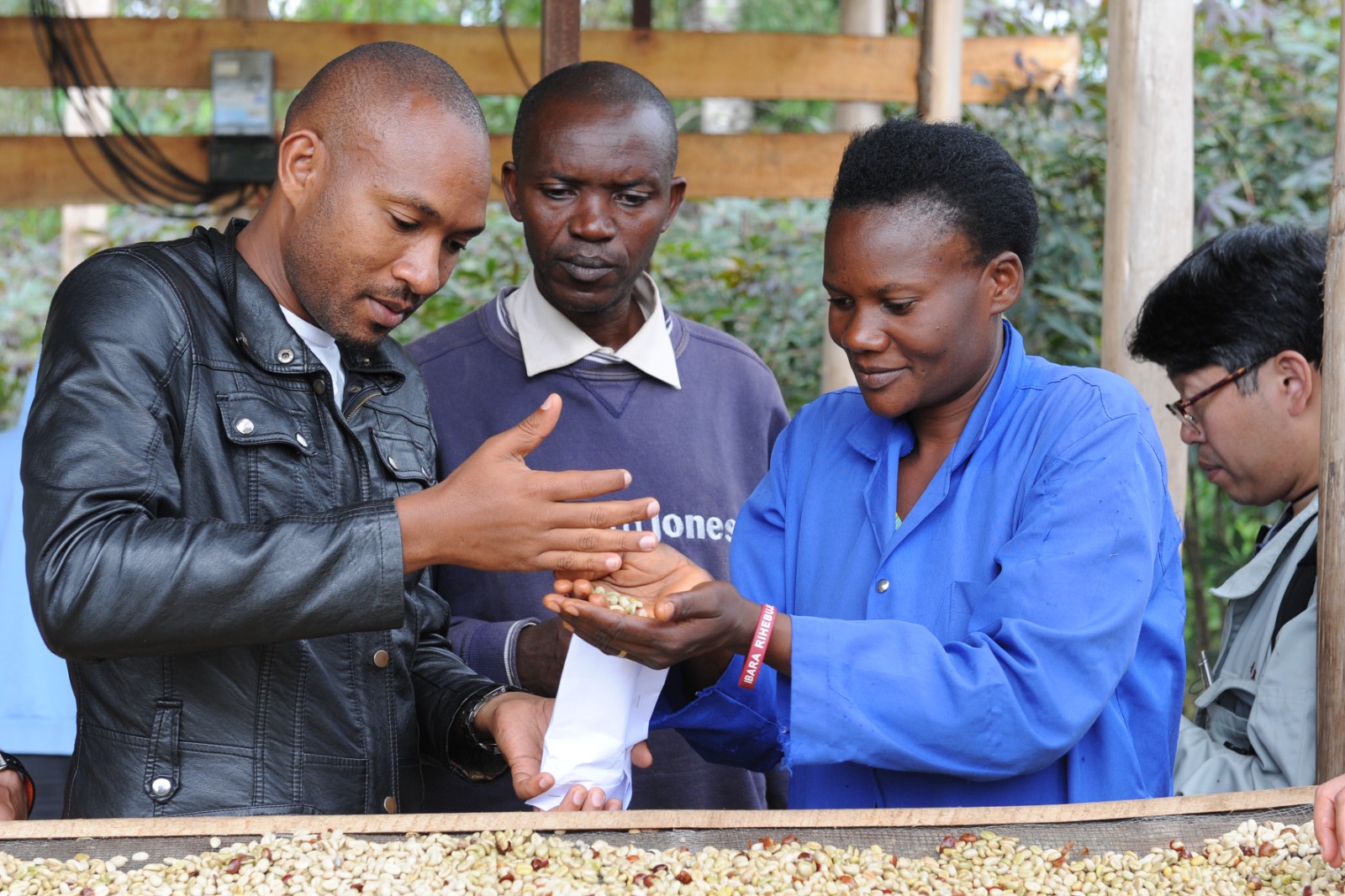
My name is Norihiro Takeda and I am working in Rwanda. I am posting here a wonderful article written by my friend Pascal so that as many people as possible can read it.
日本語版:日本の寄贈バスに乗ってたどり着いた明るい未来
My name is Pascal. I’m 44 years old, married, and a father of five. This is my gratitude story to the people of Japan.
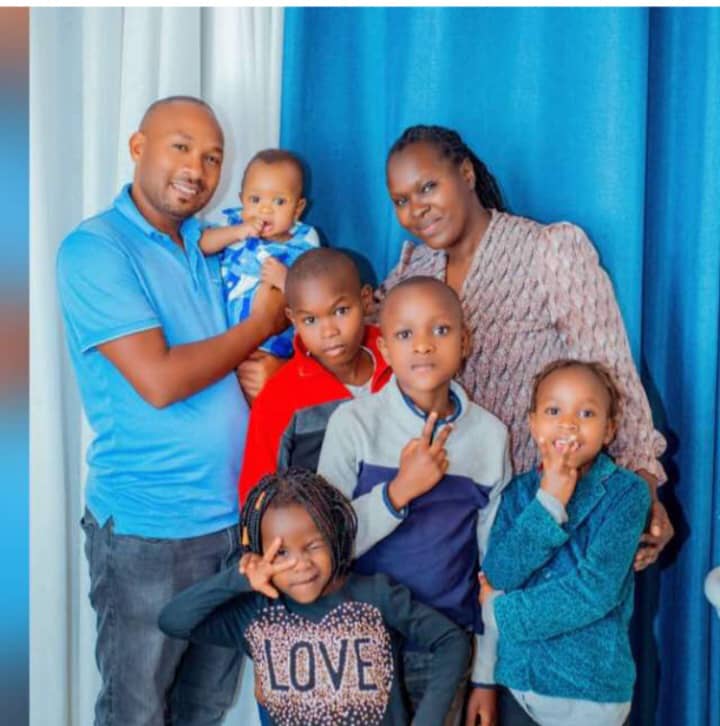
Pascal’s family
My first encounter with their contributions dates back to the 1990s, when I completed primary school and had to attend secondary school, 100 km away from my hometown, Kibuye. Kibuye, one of Rwanda’s most remote and beautiful resort areas, boasts stunning views of Lake Kivu with its turquoise waters and scenic islands.
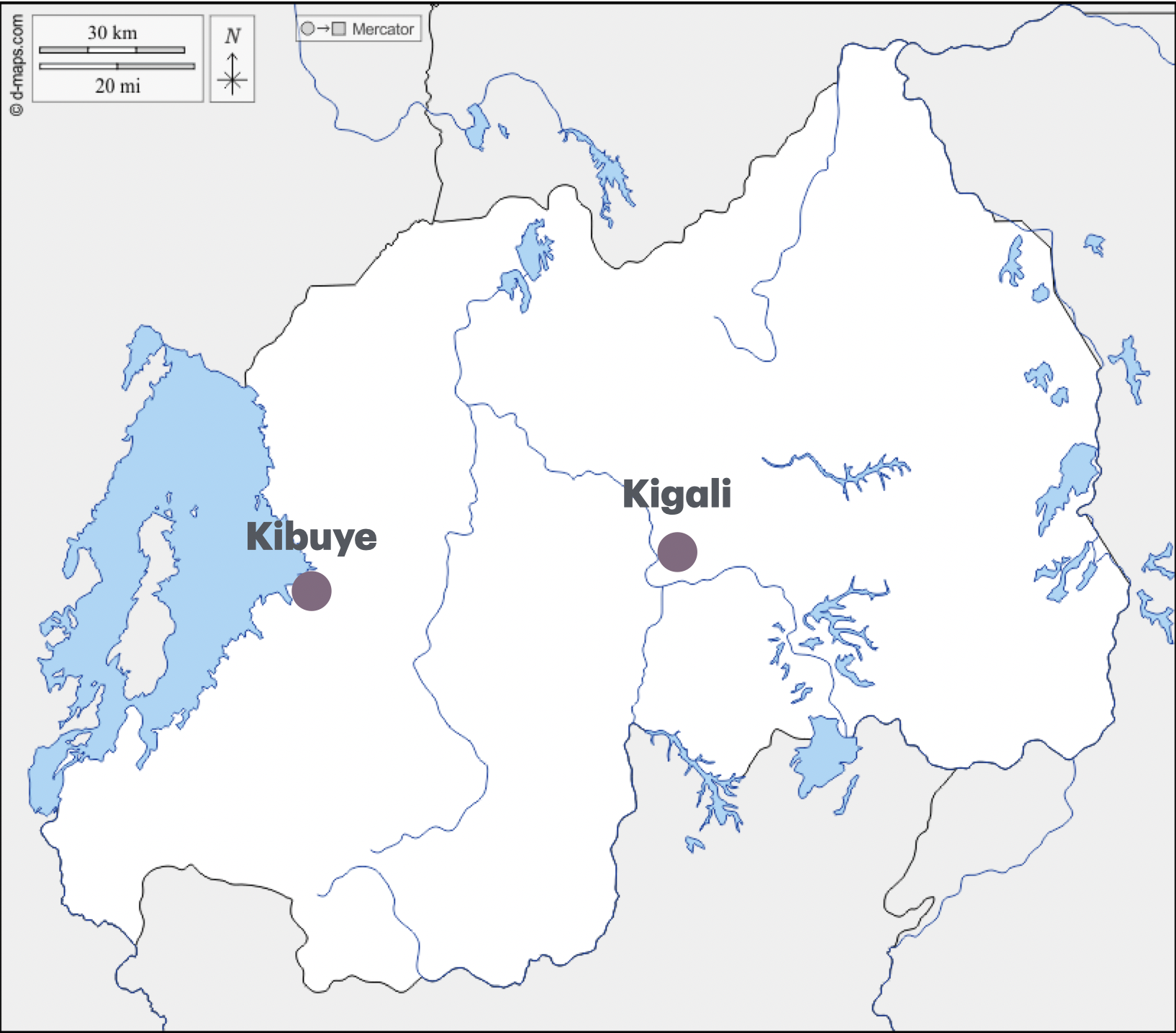
Kibuye is in Western Province in Rwanda
The bus became a lifeline
At that time, Rwanda, and particularly Kibuye, was still underdeveloped, with poor roads. The only available transportation for most people was public buses donated by Japan under a grant aid scheme to ONATRACOM, Rwanda’s public transportation organization.
I remember vividly, as a teenager, seeing the Japanese flag painted on the side of the buses with the words, “From the People of Japan.” These buses became my lifeline, carrying me to and from high school and university for over 10 years.
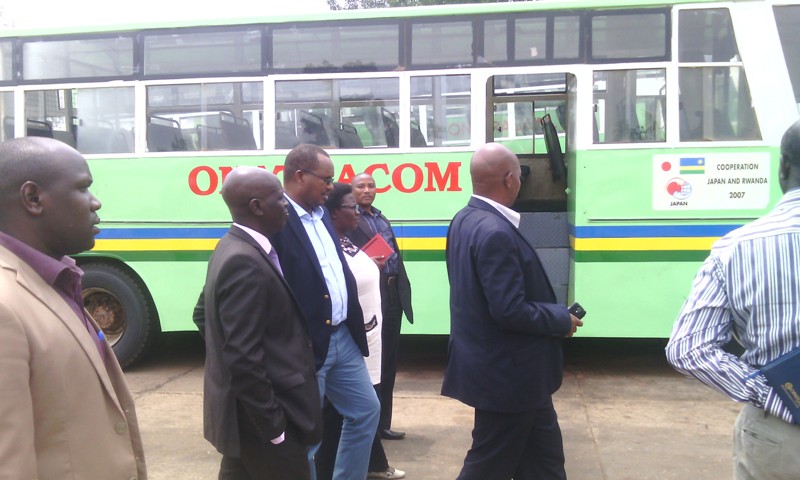
The Japanese and Rwandan flags are painted on the bus. Source :Igihe
One thing I will never forget is that there were only two bus departures each day—one in the morning and one in the afternoon. Demand for seats was always high, and it was often a struggle to get on board. I can’t count the number of times I had to reschedule my departure or arrive late at school. Sometimes, I would even stay extra days at school or spend a night along the way due to bus breakdowns or poor road conditions, especially during the rainy season.
Despite these challenges, I successfully completed both secondary school and university, becoming an agricultural engineer—all thanks to the buses donated by Japan. This donation scheme played a crucial role in my life, as it did for many other Rwandans.
Finding my calling
This letter is my humble expression of gratitude for the unwavering support from the people of Japan. You may not realize it, but your tax contributions are making a difference in the lives of people in developing countries through Official Development Assistance (ODA).
My connection with Japanese didn’t stop there. After graduating, I moved to Kigali, the capital, in search of a job. Through a friend of my father’s, I found a position with a company that supported farmers’ cooperatives exporting chili peppers. I worked there for two years, but the pay was not sufficient, so I decided to resign and search for something better. At that time, job searching through the internet wasn’t common, so I relied on the national newspaper, Imvaho Nshya.

I still remember it clearly—I was in the middle of a nap when I picked up the latest newspaper, purchased with my modest savings from my previous job. As I flipped through the pages, I came across a job advert from JICA (Japan International Cooperation Agency) looking for an agricultural engineer to support farmers’ cooperatives. I immediately felt that this job was meant for me. To increase my chances, I submitted two applications—one in the middle of the application period and one just before the deadline.
A few days later, I was shortlisted for a written test and an interview. I can honestly say that preparing for this test was one of the most intense periods of my life. I wrote a six-page summary of my qualifications, experience, and why I was the best candidate for the job. I rehearsed countless times, and to this day, I’m still amazed at where I found the confidence to stand before the interview panel. When I received the call telling me I had been selected, I was overwhelmed with joy. That call will always be one of the most memorable moments of my life.

Work experiences in JICA
Now, more than 15 years later, I’m still working in agricultural development under Japanese cooperation. This job has been a cornerstone of both my professional and personal life. I’ve had the privilege of traveling and contributing to projects in six African countries, including Senegal, Ghana, Ivory Coast, Kenya, Uganda, and Tanzania.
One of my most cherished experiences was traveling to Japan in May 2014 for a training program in Kobe, where I had the chance to experience Japanese culture. I will always remember the Onsen, visiting the UCC Coffee Museum, seeing the Akashi Kaikyō Bridge, and especially visiting the Golden Pavilion in Kyoto.
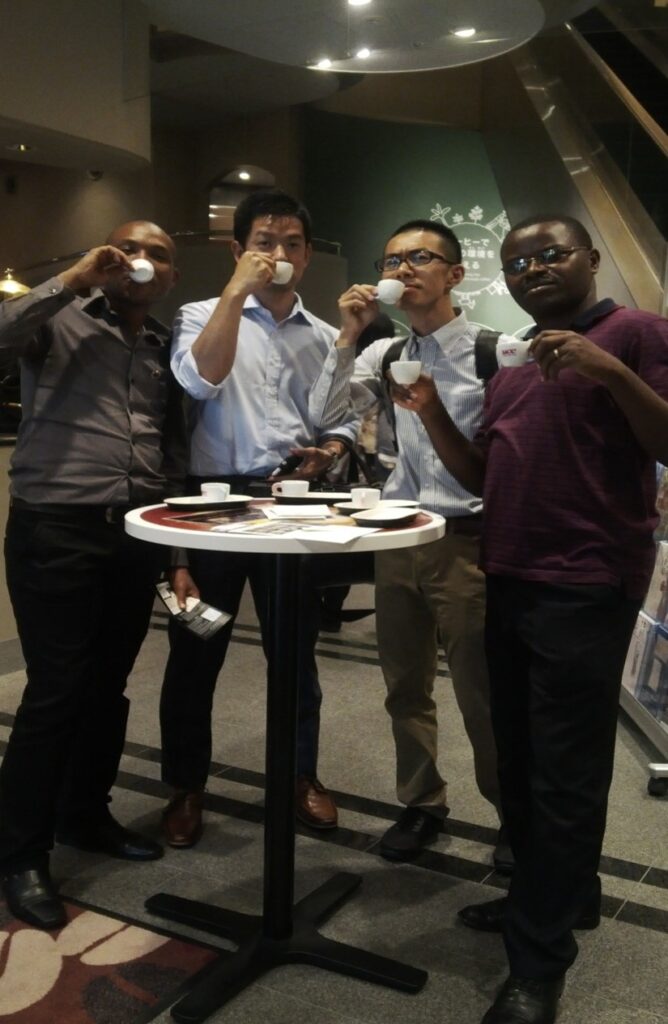
UCC Coffee Museum
There, I took a memorable photo with Japanese students who were on a study tour, and enjoyed a wonderful dinner with my former Japanese colleagues at a restaurant near the beautifully designed Kyoto Station.
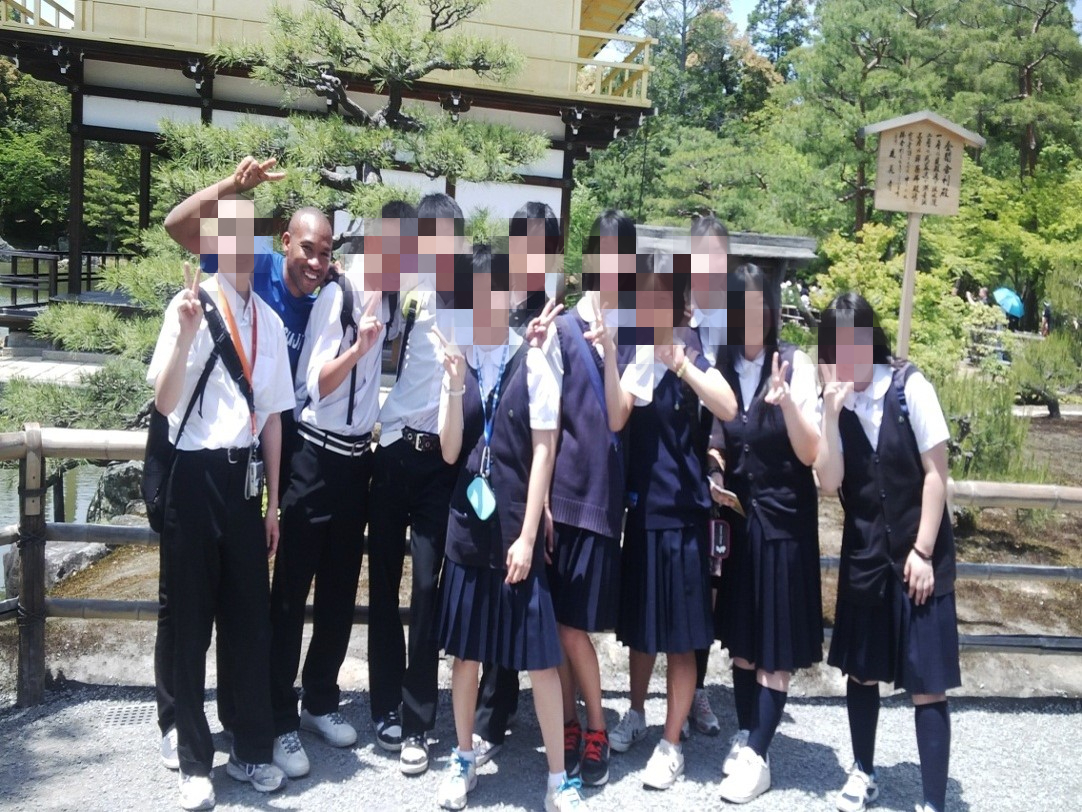
With the Japanese students
The greatest blessing of my work with Japan, however, has been the opportunity to contribute to my own country’s development. Through the transformative agricultural projects financed by Japanese taxpayers, I’ve been able to help improve the lives of thousands of Rwandan farmers. Over the past 15 years, I have overseen five major projects that have significantly contributed to Rwanda’s food security.
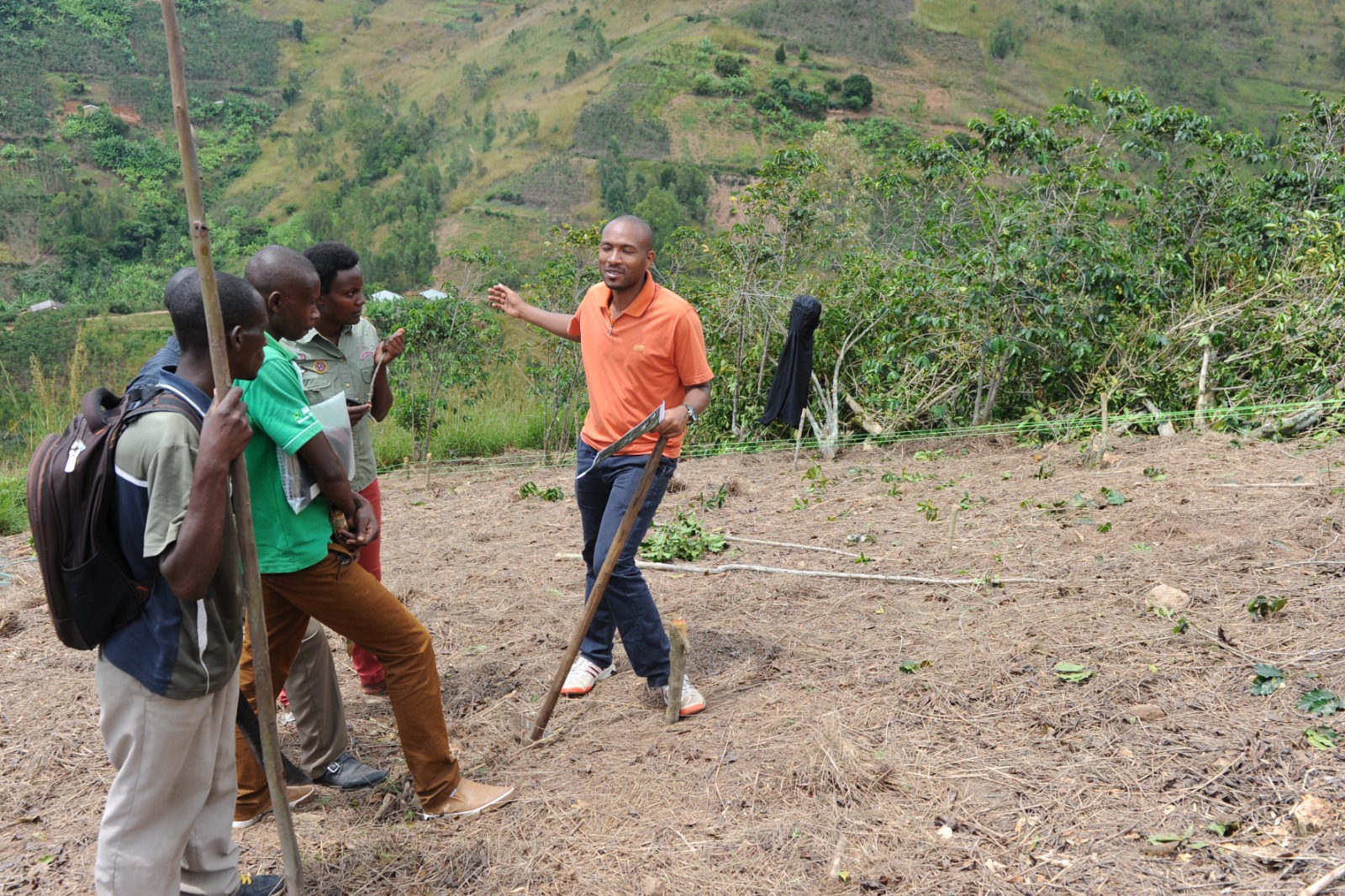
Pascal helps Rwandan farmers improve their lives
On a personal note, my journey with JICA has also been transformative. When I started, I was single, but now I have a family of seven—my wife and five children (three boys and two girls). I hope that my story and this simple message of gratitude reach the people of Japan, making them proud of their contributions to the developing world. Supporting others, no matter how far away, can bring blessings beyond imagination.
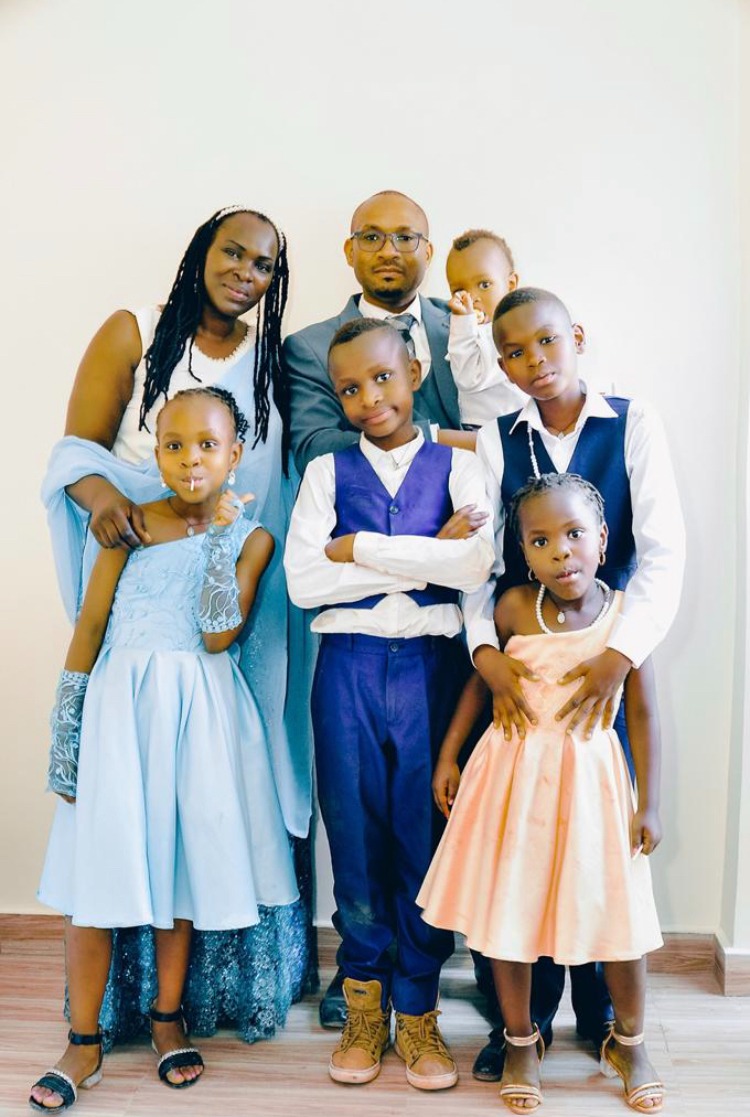
Pascal’s family
Written by Pascal FURAHA
Staff of JICA Rwanda Office/ Rwandan citizen.
We will be posting more articles from Pascal in the future. Stay tuned for more stories from Rwanda by Rwandans!
Editor: Norihiro Takeda
*The information on this page is the personal opinion and does not represent any of the affiliated organizations.

